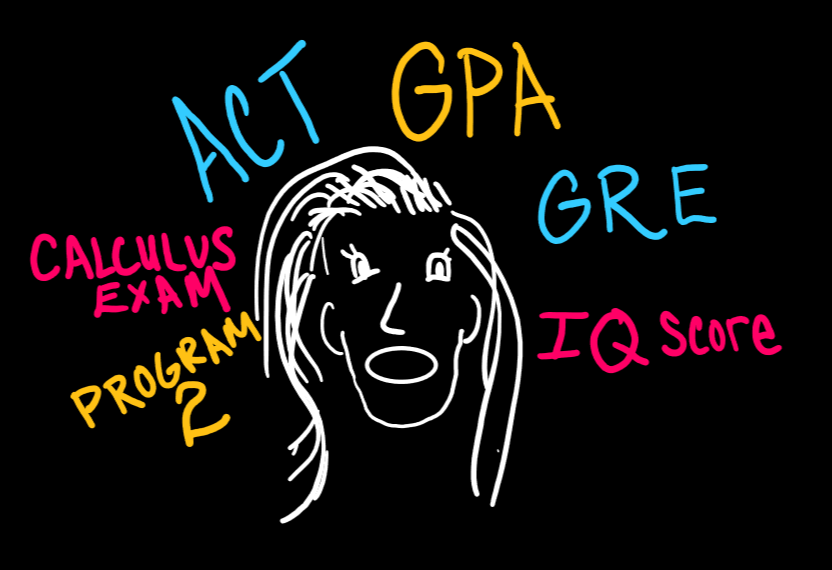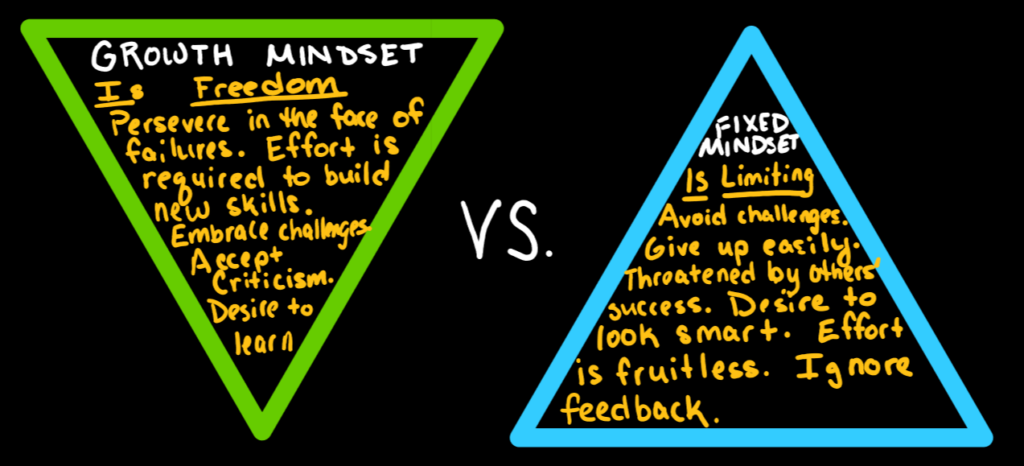(This post was authored by April Crockett)
I have been inspired by a recent talk by Mr. Luis Velazco at the Computer Science Spring 2021 Diversity & Inclusion Seminar Series when he discussed that he was a “medium student” who struggled in calculus bu that he persisted through these struggles and now works at Microsoft as a Senior Software Engineer. His story really resonated with me because my academic background is so similar.
Whatever it is you have hopes to achieve, whatever looks like “success” to you, you have what it takes to get there. You don’t need anything that you weren’t given at birth.

You aren’t your numbers! No matter how good or how how bad your “numbers” are, this isn’t who you are and it certainly doesn’t limit what you can accomplish in this world. You are not your ACT score, SAT score, latest Calculus score, latest programming assignment grade, GPA, GRE score, max bench-press weight, or any other number that you have received in your life. These numbers indicate your current status in that particular content, but not your future abilities. I know plenty of people, including myself, who do not openly share what we made on the ACT. I also do not like to share my grades in my first year of college. Although I wasn’t proud of these numbers, if I had used them to determine what I would be able to do in life, I would never have followed the path that God set for me to become a Computer Science teacher. In my second year of college, I decided that I would be relentless about improving my grades so that I could do what I love. I quit putting a ceiling on what I was able to do. I wasn’t “bad” at math, I just didn’t know how to study and had a very unrealistic idea of the effort I needed to put into more challenging classes.

Improving meant I needed to develop a growth mindset and relentless determination. There are two basic mindsets – fixed versus growth. These mindsets and their descriptions come from the work of Stanford psychologist Carol Dweck and her book, “Mindset: The Psychology of Success”. In her book, she explained that a “fixed mindset” assumes that our character, intelligence, and creative ability are static attributes which we can’t change and that the limit of our success is determined by this. A “growth mindset,” on the other hand, thrives on challenge and sees failure not as evidence of intelligence but as a catalyst for growth. What type of mindset you adopt greatly affects not only your professional life, but also your personal life. One example of a person with a growth mindset in her book that was particularly inspiring to me was about Michael Jordan, who is one of the greatest basketball players of all time. He was a four-time gold medalist with USA Basketball, including winning two Olympic gold medals, and was twice named the USA Basketball Male Athlete of the Year. He is quoted as saying “I’ve missed more than 9,000 shots in my career. I”ve lost almost 300 games. 26 times, I”ve been trusted to take the game winning shot and missed. I’ve failed over and over and over again in my life. And that is why I succees.” Michael Jordan said that his success was the result of hard work, not genetics and “if you’re trying to achieve, there will be roadblocks. I’ve had them; everybody has had them. But obstacles don’t have to stop you. If you run into a wall, don’t turn around and give up. Figure out how to climb it, go through it, or work around it.”
My favorite phrase about failing was from Jessica Robinson at the Fall 2020 Diversity & Inclusion Seminar Series when she said she has succeeded in her life by “failing forward”. The times I have been most proud of my accomplishments are the times that I have failed forward, and because of my persistence through the challenges, have come out on top. Embrace challenge, find inspiration in other’s successes, and work as hard. as required to success because you are worth it!
Reference Links:
- Recording of talk from Luis Velazco in the Spring 2021 Diversity & Inclusion Series:
- Recording of talk from Jessica Robinson in the Fall 2020 Diversity & Inclusion Series:
- Mindset: The New Psychology of Success book in the TTU Volpe Library:
